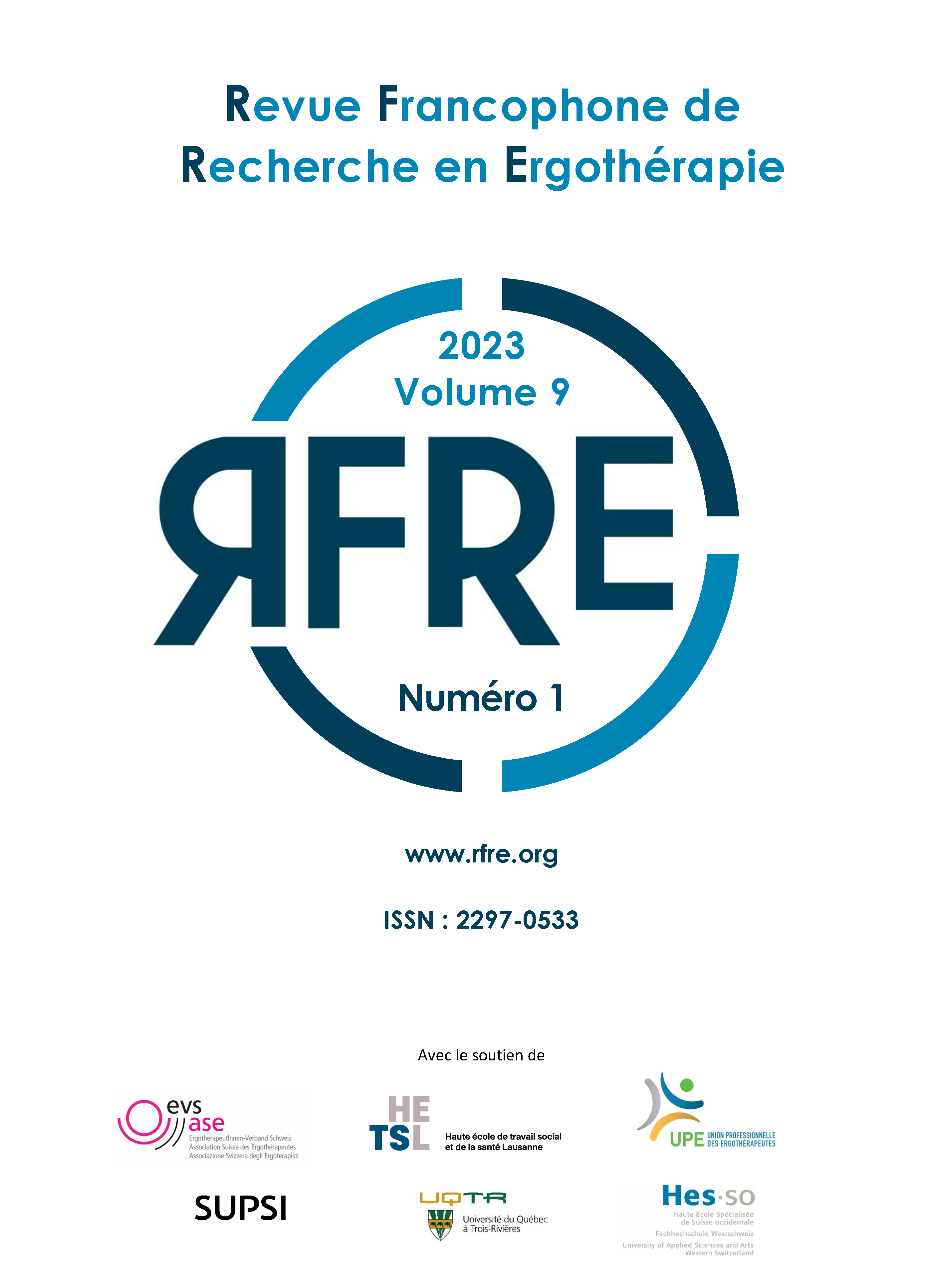L’impact de l’isolement social engendré par la covid-19 sur le fonctionnement cognitif et la capacité à réaliser les activités des personnes aînées vivant avec un trouble neurocognitif : résultats d’une étude de portée
DOI:
https://doi.org/10.13096/rfre.v9n1.229Keywords:
Elders, Lockdown, Dementia, Cognitive function, SARS-CoV-2Abstract
Public health measures were implemented during the COVID-19 pandemic. To our knowledge, no literature review has focused on the impacts of these measures on cognitive functioning, nor on the realization of activities in older adults living with a neurocognitive disorder (NCD). Objective: Hence, this scoping review explores the impacts of prolonged periods of social isolation caused by the COVID-19 pandemic on cognitive functioning in older adults living with a NCD and their ability to carry out daily activities. Methods: From 22 keywords, 31 articles were retrieved from electronic databases. Results: Most of the participants in the included studies were living with dementia (n=24; 77.4%). Evidence suggests that a decrease in cognitive stimulation opportunities, an augmentation of periods of social isolation, and an interruption of healthcare services and support generate a general cognitive decline (n=23; 74.2%), as well as an augmentation of difficulties performing daily activities (n=20; 64.5%), mainly leisure activities (n=7; 22.6%) and personal care (n=6; 19.3%). Conclusion: The results of the present study show the importance of developing and implementing alternatives that will prevent cognitive loss in case of another prolonged period of social isolation is imposed.












